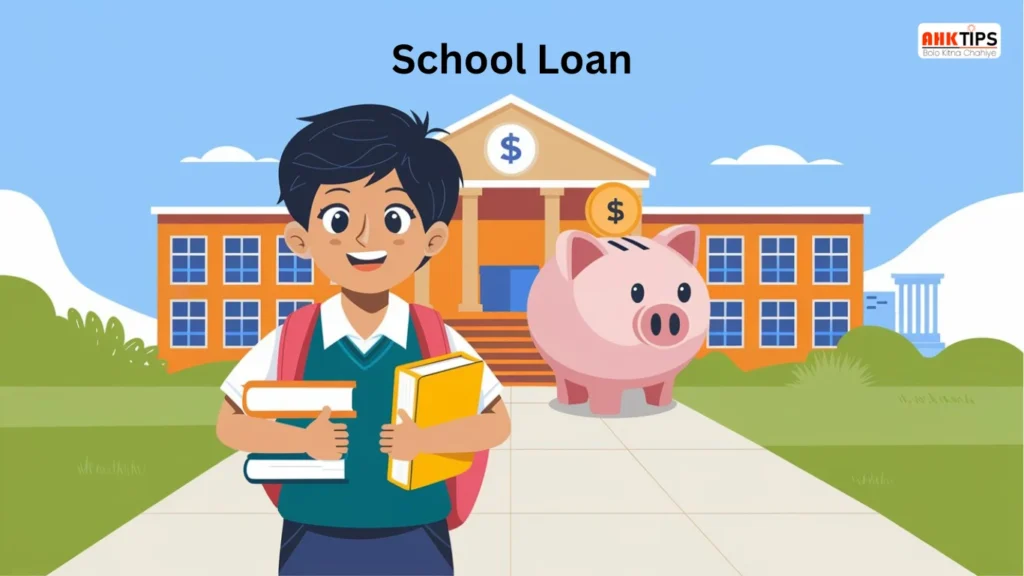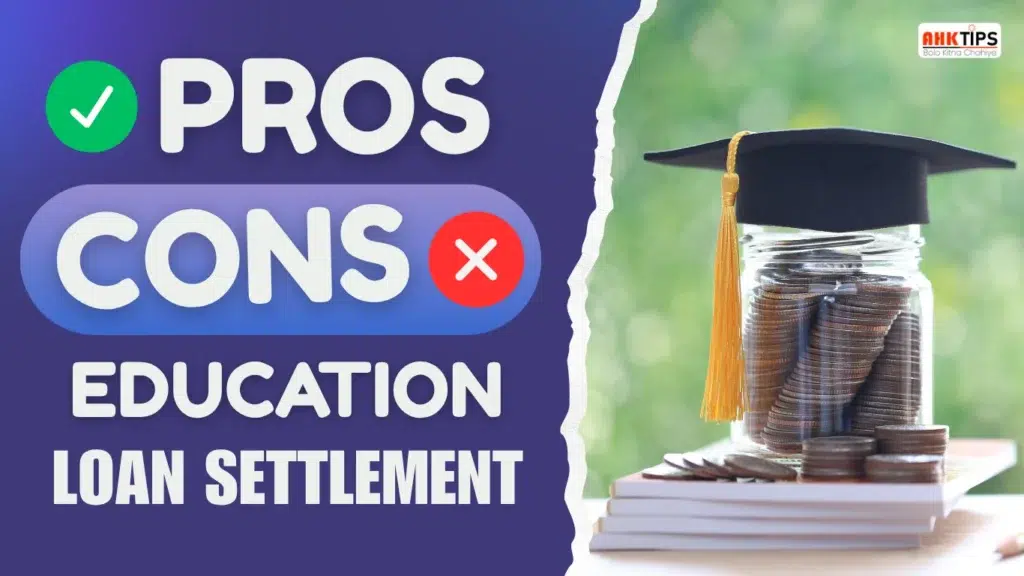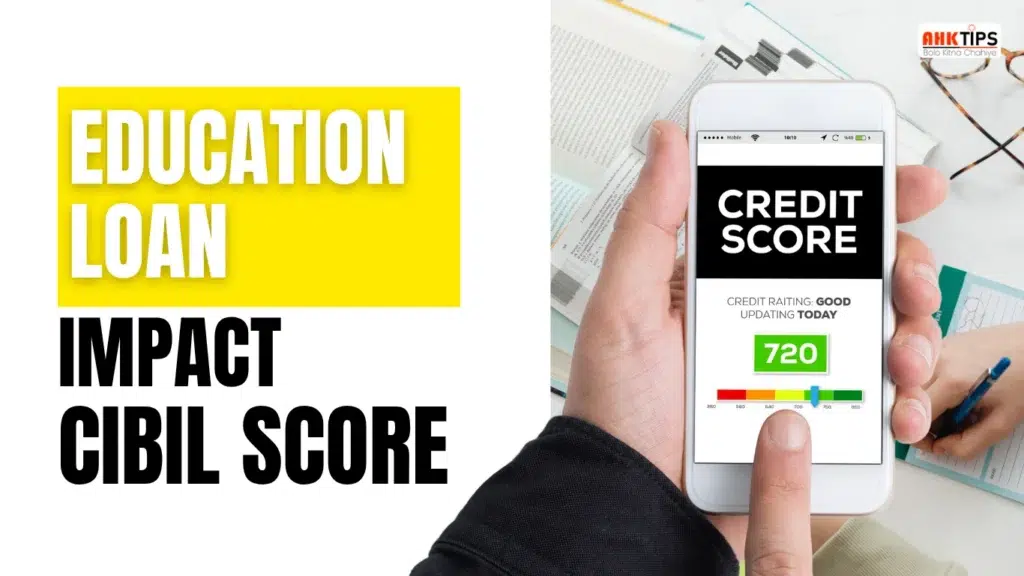Summary
Education loan repayment is considered in case borrowers face financial hardships and are unable to repay the loan in full. It is a measure of last resort after other alternatives like restructuring or reduction of EMI have been eliminated. Settlement can prove to be helpful in cases of long-term unemployment, reduced income, disability, or severe financial pressures. Settling a loan, however, impacts your credit score and can affect career opportunities, particularly in finance, government, or technology fields. Choices include income-driven repayment, moratorium extensions, partial prepayments, and government relief programs. When settlement is not avoidable, borrowers must negotiate professionally, submit documentation of hardship, and ask the account to be “closed” rather than “settled” to limit credit harm. Communications with banks, honesty, and agreements in writing will protect future economic opportunities. Discussing smarter ways of repayment can prevent long-term credit and career damage.
Introduction
Education loan repayment can be tricky, and when something sudden in life happens to disturb your financial equilibrium. Although most borrowers pay back the loans regularly, some might find it difficult to make monthly EMIs because of a loss of job, a decrease in income, or illness. Under these circumstances, education loan settlement becomes an option, but let’s know when and how to think about it. Loan settlement brings relief, but it can also affect your credit score and future financial prospects. This article discusses the appropriate time for loan settlement, options to explore, and best practices to negotiate with banks to ensure your long-term financial well-being.
Understanding the Right Time to Consider Loan Settlement
Repaying an education loan settlement is often difficult, especially when life takes an unexpected turn. Repaying the entire amount of the loan becomes unaffordable in certain scenarios. That’s when education loan borrowers begin to speculate when to settle their education loans. Timing is everything, and understanding when to opt for settlement can save your long-term financial well-being.
What Does Education Loan Settlement Mean?
Education loan settlement to recovery is a procedure in which the bank agrees to accept a lower amount than what is initially due. The option typically comes into play when the loan has already become an NPA and the borrower cannot pay.
This is different from EMI reduction or full repayment. It is a last resort when the borrower is unable to pay back even after multiple tries or alternative arrangements.
When to Settle an Education Loan
Long-Term Unemployment
If you have finished your studies but could not get employed for a long time, and your grace period is exhausted, education loan settlement can be considered. Banks provide time and guidance during the initial repayment period, but if no source of income comes even after repeated follow-ups, settlement is an understandable choice.
Permanent Drop in Income
Some of the borrowers might get a job but receive a much lower salary than anticipated. If your income is less than that which will pay for EMIs and basic survival costs, and if this continues for years, settlement will enable you to settle the loan and move on.
The banks might request proof of income, such as salary slips or an income certificate, before they accept your case.
Severe Financial Stress
Serious disease, family crises, or accidents can lead to the depletion of your savings and also hamper your earning capacity. If the stress persists and renders it impossible to make the monthly repayment, it may now be time to go to the bank seeking a settlement.
Disability or Health Issues
If the borrower is permanently disabled or has a long-term medical condition that impacts his/her capacity to work, settlement is a viable option. Banks typically demand medical evidence and official certificates to consider such cases.
When Other Options Have Failed
Before opting for settlement, borrowers are instructed to consider alternatives such as restructuring, EMI reduction, or a moratorium. However, when all of these fail and the loan remains unpaid, settlement is the last resort.
How Timing Affects Your Career and Credit
The timing of your decision can have a big impact. Settling a loan early in your career may hurt your credit score, making it harder to get personal loans, home loans, or even credit cards later. Employers in certain sectors may also review your financial background.
If there is a likelihood that your financial position will change in the near term, then it is advisable to postpone settlement and ask the bank for more time. However, if your economic position will not change soon and the debt is causing perpetual anxiety, then it will be advisable to settle and make a fresh start.
Best Loan Settlement Offers That Won’t Destroy Your Credit Score
Struggling with your student loan but worried about damaging your credit rating? Fear not, you are not alone. The majority of borrowers are fighting to repay their education loans and are looking for ways to make it more manageable without jeopardising their future financial plans. Fortunately, there are solutions to pay off your education loan, and not all of them result in a poor credit record.
Recognising the Importance of Picking the Best Option
Before you decide on an education loan settlement, it’s important to understand how each option affects your credit record. A full settlement usually reflects on your credit report as “settled,” signalling that you paid less than the full amount. However, there are better options that could close the loan with minimal credit damage.
Reorganising the Loan
What It Entails
Loan restructuring is the ideal option if you are temporarily facing a financial squeeze. It allows you to tweak your repayment terms, such as extending the loan period, reducing EMIs, or changing the interest rate.
How It Helps
The bank views this as a “restructured” loan, not “settled,” which has a softer impact on your credit score. This keeps a clean repayment history but reduces monthly stress.
When to Use It
This is ideal if your finances are tight but only temporarily, e.g., after being newly employed or following a temporary loss of income.
Partial Settlement (With Negotiation)
What It Means
Partial settlement is where you negotiate with the lender to clear half the balance in exchange for the loan’s close-off. This is normally seen in instances of long-standing default.
How It Helps
If negotiated well, the bank will mark it “closed” and not “settled,” especially if it’s within mutual agreement. However, it all depends on the bank’s policy and must be communicated so that it shows in black and white.
When to Use It
Use this method if you have a lump sum but are short of the whole amount due, and you want to reduce the impact on your credit report.
One-Time Settlement (OTS)
What It Means
Banks offer One-Time Settlement (OTS) proposals to clear non-performing accounts. The borrower pays a one-time amount less than the original amount, and the bank cancels the remaining balance.
How It Helps
Even OTS causes a credit score hit in most situations. In some cases, if you manage it well with timely communications and written confirmations, you can request the account to be reported as “closed” on settlement.
When to Use It
Use this when all other repayment channels have broken down, and you’d like to settle the loan in full so as not to incur additional legal measures or hassle.
Negotiation with Bank Officials
What It Means
Your bank is generally approachable to launch open-ended solutions. You can negotiate extraordinary repayment terms, part-repayment deals, or demand credit-friendly reporting for cooperation.
How It Helps
Personal negotiation helps to build trust, and banks may sometimes offer better terms to pay off the loan without overloading your credit history.
When to Use It
Always attempt before using a formal settlement. It may lead to a better place for you and the lender as well.
How to Speak with Banks without Damaging Future Opportunities
If you are under some financial strain and cannot return your education loan, you may consider negotiating with your bank for an education loan settlement. But the majority of the borrowers are afraid of losing their future chances of getting credit by approaching the bank. But, if approached wisely, you can professionally negotiate a bank loan settlement without jeopardising your future financial reputation.
Why Communication Matters
Banks aren’t as quick to settle as you might like. They look at the borrower’s intent, how they speak, and what documentation you have in support before making a decision. Honesty, respect, and professionalism will give you the best chance of receiving a fair outcome without risking your financial future more than necessary.
Prepare Before You Visit the Bank
Examine Your Loan Account
Before approaching anyone for a conversation, be aware of your loan status. Check your payment history, outstanding amount, EMI default, and whether your loan has become a non-performing asset (NPA).
Organise Your Documents
- To establish genuine hardship, prepare the following documents:
- Proof of income or unemployment certificate
- Medical reports, in case the case is related to health problems
Bank statements
- Salary slips (in case the income is insufficient)
- Job loss or rejection letter of job offer
- Affidavit or written statement of your financial status
These letters show that you are not trying to avoid paying on purpose but genuinely facing hardship.
Tips to Negotiate an Education Loan Settlement with the Bank
Be Honest About Your Situation
Start with a disclosure of your background. Be honest about why you are unable to repay the loan. If it is unemployment, sickness, or poor earnings, banks appreciate honesty with evidence.
Avoid the use of strong or emotional language. Be respectful and concise. Indicate your intention to resolve the situation, but ask for help from the bank to do so.
For example:
“I am facing financial difficulties due to unemployment. I prefer to settle this matter respectfully and would be grateful for any possible solution considering my situation.”
Ask for the Best Possible Solution
Don’t go directly to the settlement. You need to ask initially if facilities like EMI reduction, restructuring, or interim relief can be provided. If the bank feels that you have tried all means available, they would be willing to provide an education loan settlement.
Ask for a Professional Agreement
If the bank does pay, ask them to put the offer in writing. Have them mark the final status as “closed” or “paid” rather than “settled,” which will impact your credit score more.
How to Follow Up Without Pressure
Stay in Regular Contact
Keep talking to the bank. Let them know if your situation improves. Show you’re seriously interested in working out the loan and not attempting to escape paying it.
Be Clear but Courteous
Should the bank be slow to reply, diplomatically ask for a time frame. Be firm but polite. Consistency shows the bank you’re a responsible individual, even when things get tough.
The Education Loan Settlement Impact on Credit Score and Career
Education loan settlement may be a short-term relief, but it tends to leave a lasting mark on your credit report. The education loan settlement impact on credit score becomes significant if you need to avail of future credit or get employed in risk-sensitive industries like banking, IT, or the government.
What Does Your Credit Report Indicate?
When you repay a loan, the bank closes the account for an amount short of the due. But it does not appear as a “closed” loan in your CIBIL record. The account is marked as “settled,” which means the borrower has not repaid the entire loan.
It stays in your credit report for many years and can act as a warning signal to lenders for many years to come.
How It Affects Your Credit Score
Decrease in Credit Score
Your credit score indicates your payment history. Where the loan was not repaid in total, a status of “settled” shows. The score will fall considerably for this.
Even when you pay the amount due as per the agreement, it is counted as negative regarding an outright repayment. The more recent the settlement, the greater the effect it has.
Limited Loan Approval in the Future
After paying off, new loans, credit cards, or even buy-now-pay-later schemes become harder to obtain. The lenders may deny your application or offer credit with higher interest rates since the risk has increased.
Career Risks Associated with Loan Settlement
The majority of job roles these days require a clean payment history, especially in areas handling cash, information, or sensitive operations.
Jobs in Banking and Finance
If you are applying for employment in a bank or any other financial organisation, your CIBIL report may be checked while doing background checks. A settled loan is a negative entry and raises suspicion against your financial prudence.
Government Sector Recruitment
Certain government jobs, especially in defence, administration, or finance sectors, can have background checks in which your credit report is examined. A “settled” loan can hinder your chances, especially in competitive exams where honesty and financial stability are the key factors.
Tech and Corporate Jobs
Some multinational corporations, especially IT and consulting, do background checks through third-party vendors. A bad credit record doesn’t necessarily disqualify you, but it could influence HR decisions in roles that entail access to funds or confidential information.
Reducing the Impact
- If you’ve successfully cleared a loan or plan to, there are a few things you can do:
- Ask the bank to close the account as “closed” once settled, if possible.e
- Settle the outstanding dues later and request that your CIBIL report be updated.
- Reestablish your credit by paying bills on time on any subsequent lines of credit.
- Avoid multiple settlements — one error can be corrected, but repeated instances have long-lasting repercussions.
Smart Alternatives to Loan Settlement Every Student Should Know
Facing difficulty in repaying your education loan can be stressful, but loan settlement is not your only option. While settling a loan may offer temporary relief, it can harm your credit score and limit future opportunities. That’s why it’s important to explore alternatives to education loan settlement that protect your financial health in the long term.
Why Look Beyond Loan Settlement?
Loan settlement is typically considered a last option. Negatively affects your credit report and could limit your ability to obtain new loans, credit cards, or even job opportunities in some industries. By opting for wiser options, you can ease the pressure without jeopardising your financial future.
Income-Driven Repayment Plans
What They Provide
If you earn but are facing difficulty in paying high EMIs, an income-driven repayment plan is a viable alternative. This restructures your EMIs according to your current income level. Some banks permit a lower EMI with a longer tenure until your income rises.
Who It Helps
This benefits students who earn but earn less than anticipated, or are working on freelance or part-time jobs.
Moratorium Extension
What It Means
A moratorium is a payment halt offered after you finish your education. If you’re unemployed or having money problems, you can ask for a further extension. Most banks will permit some extra months or even a year before EMIs kick in.
How to Ask For It
Put pen to paper with good reasons, such as losing your job or being ill. Attach evidence like medical certificates or employment application history to back up your request.
Restructuring the Loan
Flexible Loan Terms
Loan restructuring enables you to re-negotiate your terms of repayment. You could lower the EMI, stretch the loan term, or modify the rate of interest. This method prevents a negative credit score while keeping you on course.
When It Works Best
This is best when you want to pay but are experiencing temporary income problems for a year or so.
Government-Sponsored Relief Programs
Support Available
Sometimes the government provides relief schemes for economically weaker section students or disaster-hit, job-loss, or pandemic-affected students. These schemes could provide interest waiver, payment holiday, or minimum support.
How to Get It
Verify with your bank or look at the website of the education loan scheme under which your loan has been approved. Schemes such as the Credit Guarantee Fund for Education Loans (CGFEL) can provide some protection.
Partial Prepayment
Small Steps Help
If you cannot pay the entire EMI but have some money, make part payments. Even little but regular payments indicate to the bank that you are making an effort, which keeps the relationship good and prevents the account from becoming a default.
Conclusion
Repayment of an education loan may prove to be a boon in times of need, but only after one has ventured into every other avenue and with great precaution. Having the correct knowledge of timing and being adequately equipped may keep the damage to a minimum on your credit report and future career opportunities. Diplomacy to the lender, frankness regarding your situation, and best deal negotiator skills are essential towards an amicable solution. Moreover, exploring options such as restructuring the loan, moratorium, or government relief plans will enable you to determine sustainable options without compromising your fiscal credibility. Finally, judiciousness in decision-making and foresight will enable you to utilise your education loan wisely and restore your money future confidently.
Frequently Asked Questions (FAQ’s)
Ans: Typically, when the borrower is unable to repay, this is a transaction in which the bank agrees to accept a lower amount than the entire loan repayment.
Ans: If other alternatives have not worked and you face long-term unemployment, permanent loss of income, severe financial strain, or disability, settle.
Ans: Generally, remaining on your report as “settled,” loan settlement lowers your credit score and can make it more difficult to apply for future loans or jobs.
Ans: Yes, options include income-driven plans, partial payments, loan restructuring, E MI reduction, moratorium extensions, and government assistance programs.












